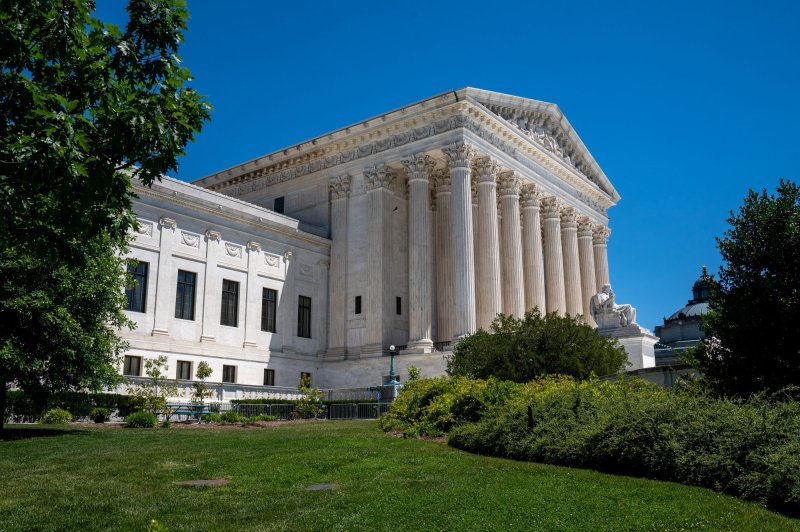1 of 4 | More than 80 corporations on Monday offered their support to Harvard and the University of North Carolina in Supreme Court cases challenging their consideration of race in admissions. File Photo by Ken Cedeno/UPI |
License Photo
Aug. 1 (UPI) -- A group of 82 corporations on Monday signed onto amicus briefs filed in the Supreme Court defending Harvard and the University of North Carolina's consideration of race in their admissions processes.
The companies, including Apple, Google, Meta Platforms, Starbucks and General Electric signed the briefs arguing that racial and ethnic diversity positively benefits the experience of students at the universities and leads to more diverse workplaces that "enhance business performance."
"Research and experience demonstrate that racial diversity improves decision-making by increasing creativity, communication and accuracy within teams," the companies wrote in one brief.
The briefs came in response to a pair of cases against the universities in the Supreme Court, both filed by Students for Fair Admission, or SFFA, -- a group founded by conservative Edward Blum.
In the Harvard case, SFFA argues that affirmative action rules discriminate against Asian American students while the North Carolina case alleges that Asian-American and White students are discriminated against in favor of Black and Latino applicants.
The group has filed similar lawsuits against affirmative action nationwide.
The companies cited "strong evidence" that supports the notion that university students who study with diverse peers "exhibit enhanced cognitive development" that is needed for a range of skills necessary in the current economy.
"Students of all racial backgrounds benefit from diverse university environments," the brief read. "Building a diverse classroom experience is how to turn out the most informed critical thinkers. Classroom diversity is crucial to producing employable, productive, value-adding citizens in business."
A second amicus brief filed by major science and technology companies argued that a racially diverse workforce helps science, technology, engineering and mathematics, or STEM, companies recruit and retain talent while also contributing to innovations and new technologies that are in line with the needs of their global customer base.
"Companies whose workforces are racially and otherwise diverse will be better equipped to identify and address any number of scientific and technological challenges," the companies wrote. "Tech companies work on unconventional questions that require creative solutions and diverse groups consistently outperform homogenous groups on exactly that type of problem solving."
IBM, Aeris Communications, the Massachusetts Institute of Technology and Stanford University signed a third brief that asserted diversity not only serves to "promote better outcomes for students in STEM" but also "contributes to better science."
"As such, American businesses at the forefront of innovation in STEM depend on the availability of a diverse cross-section of talented graduates from the nation's most rigorous and elite institutions."
The Supreme Court in 2016 ruled 4-3 that "considerable deference is owed to a university in defining those intangible characteristics, like student body diversity, that are central to its identity and educational mission" in a decision authored by Justice Anthony Kennedy.
Kennedy, however, was replaced by Justice Brett Kavanaugh in 2018, and the confirmation of Justice Amy Coney Barrett gave conservatives who have been more critical of affirmative action policies a 6-3 majority on the court.
Justice Samuel Alito in a dissent to the 2016 ruling asserted that affirmative action policies no longer serve the purpose of "helping the disadvantaged.'
"Now we are told that a program that tends to admit poor and disadvantaged minority students is inadequate because it does not work to the advantage of those who are more fortunate," he wrote. "This is affirmative action gone wild."















